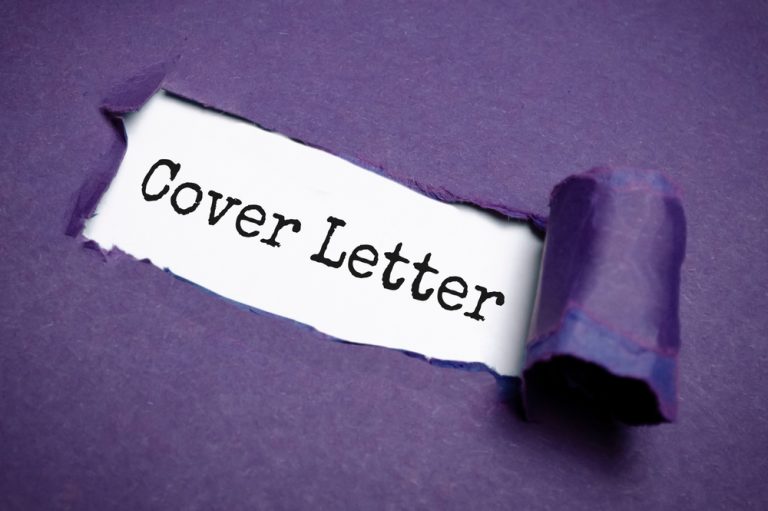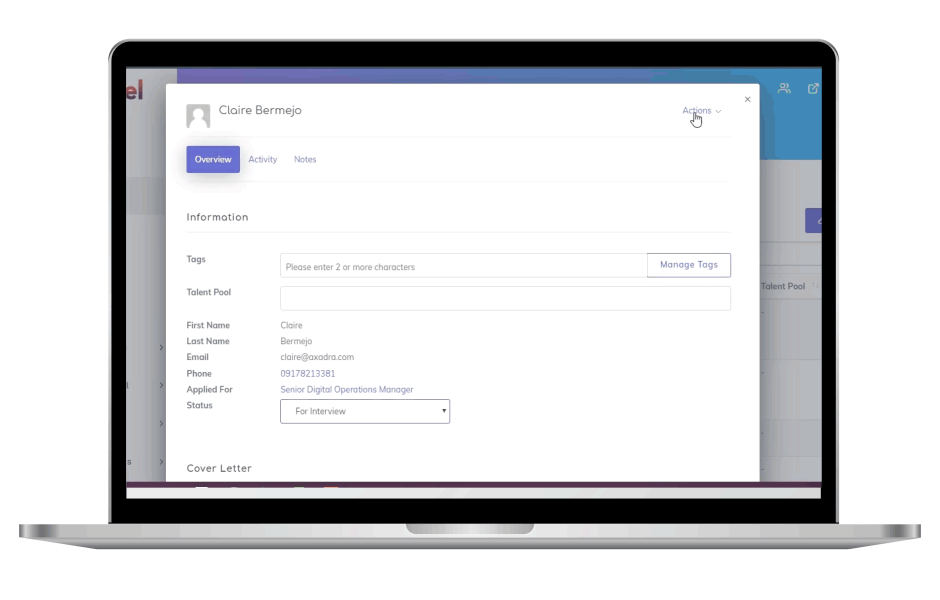“Are cover letters still necessary?” is a question many people ask themselves when looking for a job. Nowadays, there is much debate regarding the importance of cover letters. While some contend they are still relevant, others disagree. So, to give a definitive answer, Skillfuel experts weighed in on the matter.
In this article, we’ll discuss whether cover letters are still necessary in 2022 onwards. We’ll also review some frequently asked questions about cover letters, such as when to submit one and the best practices for writing an effective cover letter.
What are cover letters?
Cover letters are one-page documents that are sent in during the hiring process. These are often attached to résumés and curriculum vitae as supporting documents. They are also known as application letters and motivation letters. Your cover letter should elaborate on why you are the most qualified candidate for the position and why you are interested in working for the specific organization. A cover letter’s content should be genuine rather than hypothetical or overly generic.
The primary purpose of a cover letter is to strengthen your job application. When a hundred people are applying for the same job, most recruiters can decide who to hire based on the cover letter. That’s why a cover letter is an excellent opportunity to highlight your experience, skills, and the value you can bring to a company beyond what is included in your resume.
Do recruiters read cover letters?
The short answer is yes. Most recruiters and hiring managers read cover letters. In fact, 78% of recruiters prefer applicants who include cover letters in their application for the following reasons:
- It demonstrates a candidate’s motivation to acquire the position.
- It gives additional information about the applicant.
- It shows the candidates’ personalities.
Hiring managers learn more about applicants when they read their cover letters. It provides them with more information to screen candidates for a specific position. Furthermore, recruiters will have a better idea of what the candidate is capable of. This will enable them to tailor the interview questions to a specific candidate. There are also instances where recruiters instantly reject applicants without a cover letter. Because of this, it’s imperative to prepare cover letters whenever possible.
When do I need a cover letter?
Do you need a cover letter when applying online? Although cover letters are still relevant, the advancement of technology has made them optional. Because of improved online recruitment, application systems have made it possible to learn everything about the candidate based on what they answer in the form. However, there are still instances when you need to include a cover letter along with your resume. Here are some of them:
When a job application instructs you to include a cover letter
When a job application tells you to send a cover letter, you should send one. It’s a red flag for recruitment if you never send one in when the instructions say to do so. Recruiters who read cover letters will feel you’re not keen on following instructions, lowering your chances of getting hired. To ensure this doesn’t happen, read the job application thoroughly.
If the hiring manager or recruiter requests a cover letter
Another instance when you’ll need a cover letter is when the recruiter asks for one. Sometimes the job application doesn’t say if you need to send a cover letter, but the recruiter will ask you to submit one after the interview. If this happens, make sure to send them one. This may mean the hiring manager needs more information about you before you can proceed to the next step of the hiring process.
When should I not include a cover letter?
Yes, cover letters are still necessary, but there are instances where you shouldn’t include one. Here are some of them:
When the job application explicitly states not to submit one
The recruitment process starts with applying. Now, if the job application says you don’t need to send a cover letter, do what it says. That’s because some recruiters don’t read cover letters, so they don’t require them.
This is another matter of following instructions. You’ll have a higher chance of getting the first interview when you follow everything the job application requires. If you think a cover letter will really help you, polish your resume to include what you want to say in your cover letter.
When there’s no place to upload a cover letter in the application form
Most candidate scheduling software and other online application systems will ask you to upload a résumé but not a cover letter. This is because some of these are already programmed to ask specific questions you want to address in your cover letter. So, if you only see one button for submitting a file, make sure you submit your résumé rather than your motivation letter.
When you don’t have time to customize cover letters
One common recruitment problem is when recruiters read generalized cover letters. Yes, cover letters are necessary, but you don’t have to force yourself to submit one, especially when it’s not a requirement. It is preferable not to receive a cover letter for hiring managers and recruiters than to obtain one that’s poorly written. A poor cover letter is generic and based on a template you intend to send to all the jobs you’re applying for. So, if you don’t have time to create customized cover letters, don’t write one.
How can I write an effective cover letter?
Now that we’ve established that cover letters are still important, here are some tips for writing them well:
Be concise
Most cover letters are one-page long. As a general rule of thumb, a cover letter should be between 250 and 400 words.
Pay close attention to the submission guidelines
Carefully read the job description of any job you’re applying for. Look out for any specifics, such as the cover letter format. The file type (Word or PDF), fonts, margins, and content are all factors to consider. Also, some job postings already outline what you should write in the content. If you see one, follow the outline so recruiters can easily read your cover letter.
Check for spelling and grammar errors before sending in your resume and cover letter
When you’re finished writing, proofread your cover letter for typos and grammatical errors. Recruiters will only read your cover letter thoroughly if they don’t see grammatical issues. Grammarly, Hemingway Editor, and Quillbot are just a few spell checkers you can use to ensure your writing is error-free.
Don’t beat around the bush
Just saying you’re good at communicating and contributing to teams won’t cut it. Seek instead to substantiate this assertion with examples from your own experience. For example, instead of saying, “I am a great writer”, follow it up by citing your writing experiences. The statement can then be, “I have led the newsletter campaign for our company and written over 60 articles for various clients, demonstrating that I am a very competent writer”.
Develop your branding
Your resume and cover letter should have consistent formatting features such as fonts, margins, colors, and style. This will help you stand out to the hiring manager by emphasizing your unique brand.
Take Your Cover Letters to the Next Level
It’s clear that cover letters are still necessary in 2022 onwards. Knowing how to write a cover letter is still important, even if some recruiters do not require them. Remember, the first steps in job seeking start with preparing your cover letter and résumé. The cover letter is an additional chance to sell yourself by providing more detail than is possible in your resume. Even if you decide to write a brief, straightforward one, a strong cover letter may help you get the job.

















